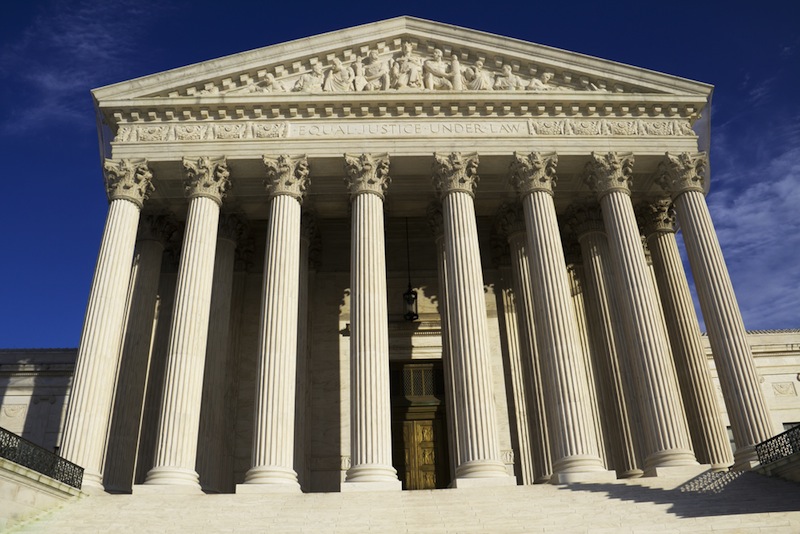The Supreme Court is expected to rule soon — possible as early as Monday — on the constitutionality of affirmative action in an important case about the diversity-based admission policies of the University of Texas, Austin.
And some court watchers believe the justices have already tipped their hands on the outcome of the ruling, signaling that they will overturn UT’s policy on narrow grounds this year and quash the core legal basis for affirmative action in an upcoming ruling.
The pending case, Fisher v. University of Texas, is about the validity of UT’s affirmative action policy, which it uses to admit minority students who didn’t automatically qualify for admission by graduating near the top of their high school class. It was brought in 2008 by Abigail Noel Fisher, who alleged that she was unfairly denied admission to the university because she’s white.
With five justices hostile to affirmative action, it’s widely expected that UT’s race-based admission policy will be struck down. The question is whether the Supreme Court will take it a step further and also overturn Grutter v. Bollinger, the landmark 2003 ruling validating the use of race as one of many factors in the university admissions process.
Numerous legal scholars thought the five conservative justices on the Roberts Court — not best known for judicial modesty — would end Grutter now. But that changed earlier this spring when the Court agreed to hear a case later this fall revisiting the University of Michigan’s affirmative action policies, at the heart of the Grutter ruling. The decision to grant the Michigan case came after the justices heard arguments and cast initial votes in Fisher, which is expected to see a decision no later than the end of June.
“I don’t think the Fisher ruling is going to overrule Grutter,” Lucas Powe, a Supreme Court expert and professor at the UT, Austin School of Law, told TPM. “When they granted the Michigan affirmative action case, that led me to believe we will lose Fisher on narrow grounds. I thought Grutter would go all at once but I can’t see any reason to grant the Michigan case unless the Texas policy is going off on its own grounds in Fisher.”
“Where Grutter is going to get hammered next year is with the Michigan case,” Powe said.
Brian Fitzpatrick, a professor at Vanderbilt School of Law, told TPM the Court may also have granted the Michigan case in the event that the outcome in Fisher was uncertain, “in order to protect their ability to review it later if things in Fisher changed.” He added that “things must have been somewhat unsettled in Fisher when they took the case because they still haven’t released the opinions.” The case was argued last October.
Fitzpatrick said another possible reason to accept the Michigan case, even if Fisher were to overrule Grutter, would be if the justices wanted to keep their options open to snuff out attempts by other universities to push the envelope and find backdoor ways to achieve racial diversity when selecting their freshman class.
Grutter was a 5-4 decision written in 2003 by Justice Sandra Day O’Connor. She was replaced in 2006 by Samuel Alito, who is strongly antagonistic to affirmative action. Taking down affirmative action piece by piece, rather than all at once, would hold true to a longstanding judicial tradition — not always followed — of changing the law in increments, as opposed to drastically at once.
Justice Elena Kagan is not taking part in the Fisher case due to her involvement with it in her prior job as U.S. solicitor general.






